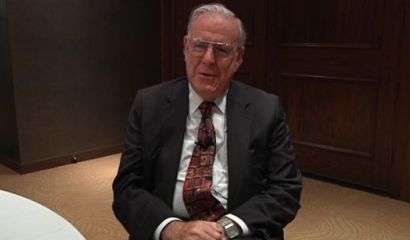Henry J. Aaron, President Obama’s nominee to chair the Social Security Advisory Board, has come under fire for his support of health-care rationing, Obama’s health care law, and the controversial Independent Payment Advisory Board.
In an interview with Health Care News, Aaron claimed he sees his new role as only advisory, not as a policymaker.
“I am not becoming a policymaker,” Aaron said. “The SSAB is an advisory group. It studies certain aspects of Social Security and presents analysis and suggestions through reports in an effort to improve the understanding of Congress and the public.”
Aaron emphasized the small scope of his role, pointing out the SSAB chairmanship is a part-time position.
“One previous chair estimated that he spent 4-5 days a month on it,” said Aaron. “Should I be confirmed, I expect to put in more time at first, getting acquainted and familiarizing myself with issues that I have not previously considered.”
Support for IPAB
Aaron has been a strong supporter of President Obama’s law and was one of the lead advocates for IPAB in his role as a senior fellow at the Brookings Institution. In July 2011 Aaron wrote an article titled, “The Independent Payment Advisory Board—Congress’s ‘Good Deed.”
“The law creating the IPAB clearly bars the panel from doing the things that critics now allege the IPAB will do. The IPAB is barred by law from rationing care; from raising taxes, premiums or cost sharing; and from restricting benefits or modifying eligibility,” Aaron wrote.
The law gives IPAB the power to lower Medicare reimbursement rates, and it empowers the unelected board to apply its decisions unless blocked by a supermajority in Congress.
Payment Rates and Rationing
Jeffey Anderson, a senior fellow in health care studies at the Pacific Research Institute, says Aaron is “expressing the fanciful belief, which the Obama administration either holds or pretends to hold, that you can substantially lower reimbursement rates to Medicare providers—which IPAB can and would do—and yet they’ll happily see just as many Medicare patients and give each one just as much time and attention, despite getting paid substantially less—eventually, according to the Medicare chief actuary, who works for Obama—even less than they get paid for seeing Medicaid patients.”
Aaron denies this represents rationing.
“It is of course true that people respond to economic incentives, and it would be wrong to suggest that supply is invariant to price. But as long as the range of covered services is not narrowed and both providers and patients are responding to the incentives they face, I don’t think that can fairly be represented as rationing,” said Aaron. “If the price of gasoline changes, the amount of gasoline people use changes. But that is not rationing, which refers to non-price limits on consumption.”





